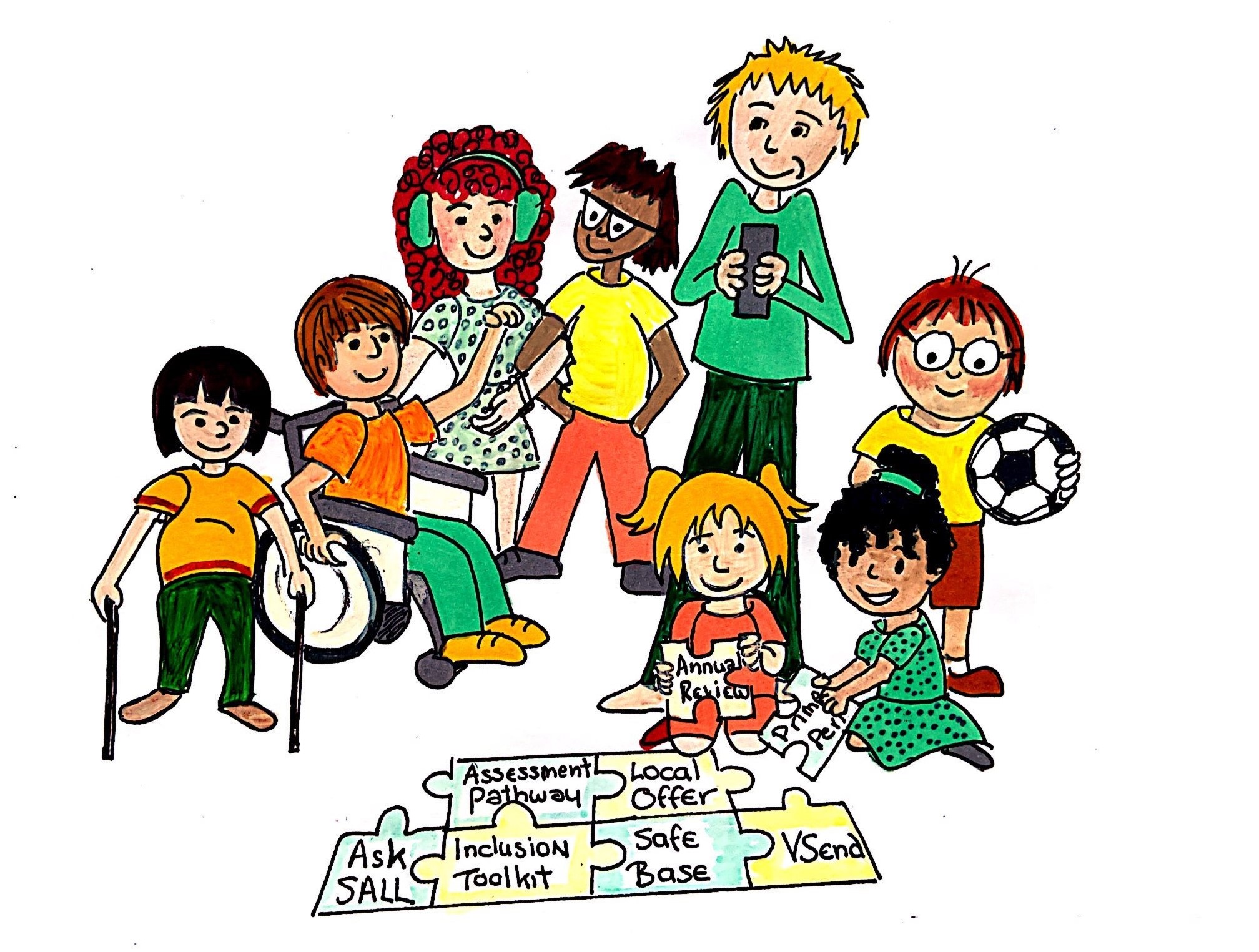Level 3-4 strategies to support targeted interventions
High quality teaching strategies, approaches and adaptations for pupils should be implemented and supplemented
0-5
In addition to previous strategies
- additional adults support the child individually, under the direction of the SENDCo to:
- identified frequent support to teach social and emotional skills and address behavioural targets on individualised plans
- use of key-working approaches to ensure the child has a trusted adult to offer support during vulnerable times
- personalised reward systems known to all staff who have contact with the child, implemented consistently across the curriculum
- time-limited intervention programmes with staff who have knowledge and skills to address specific needs, may include the need for time to reduce anxiety outside of the base. For example time outdoors
- enable some planned time in smaller groups in order to targets social skills. For example turn-taking skills and emotional resilience
- actively engage parents and carers in decisions about the child
- plan and deliver time limited interventions designed to promote positive behaviour, social development and self-esteem
- encourage emotional wellbeing. For example positive sense of self and sense of belonging to the setting
- access to some individual or small group sessions to help the child to develop coping strategies
- objects of reference. Please see Communication Matters for useful information with regards to the use of objects of reference
- an individual visual timetable maybe useful to focus the child, or a simple now and next board
- small tents to provide personal spaces can be useful to support the child with self-regulation. Allow the child to help to design their own safe space. You may wish to refer to communication friendly spaces information
- provide the same or similar resources as the child knows from home
- plastic mirrors for children to hold and investigate
- private voluntary and independent early years settings can request support from an Early Years Specialist Teacher
- emotional wellbeing – online pathway:
- in It together: An SEMH competency framework for education settings
- inclusion resources to support inclusion are available on the early years and childcare support section of our website. These resources include those specifically designed to offer support in information gathering ( ABC or Star analysis)
- the preventing anxiety based setting refusal document for further support and resources
- monitoring systems should be in place to assess child’s need, identify outcomes, implement support and monitor and evaluate progress
5-16
Behaviour for learning
- Pastoral Support Plan (PSP) may be used to ensure that there is a coherent plan, supported by family and school. This involves a differentiated approach to behaviour policy
- regular communication is maintained with parent or carer through either a communication book or other agreed mechanism. Positives and strengths are shared as well as issues
- work station within the classroom reduces triggers or sensory overload.
- teaching is differentiated. For example level, pace or amount of teacher talk reduced, visual reinforcement or access to practical activities
- time out cards are used in conjunction with five point scale. Pupil knows when to use (at three) where to go and has regulating strategies to draw on
- baseline recording of particularly difficult or significant behaviours should be made in order to carry out an ‘ABC analysis’ to inform interventions and evaluations (Antecedents, Behaviour and Consequences)
- a choice of tasks to secure learning goal is provided
- pupil has access to calm box, fidget gadgets or other supports identified as stress-reducing
- the timetable may be personalised – For example - withdrawal from some curriculum areas for work on social and emotional skills or because they are anxiety-provoking and counter-productive
- reasonable adjustment to homework policy may be necessary. For example, reading only
- classroom or teaching adjustments need to create psychological safety. For example cold call questioning or reading aloud in front of the class may be stress-inducing
Emotional regulation and self-regulation
- help is provided to understand the anxiety curve and changes in body and mind that happen as anxiety increases. For example the 5 point scale (see resources section)
- grounding and regulating skills such as box breathing are taught (see resources)
- pupils have access to a key adult, for daily check-in and check-out and during crisis
- the pupil may need an individual risk assessment
- pupils have access to solutions focused coaching (key adults are trained). For Lincolnshire' solutions focused workbook, email PRT
- weekly intervention programmes with staff who have knowledge and skills to address specific needs. Include withdrawal for individual programmes. For example therapeutic stories, or targeted group work. For example, FRIENDS. Therapeutic Story Writing, Dealing with Feeling
- strategies to support self-regulation. For example use of a calm box, exercise, mindfulness, breathing techniques, sensory breaks or sensory circuits - walking, running, trampoline.
- all pupils are taught about the impact of trauma and adversity so that they are better able to support one another and understand themselves - The Compassionate and Connected Classroom
- there is careful support for transition, both between lessons and between activities, to lower arousal


